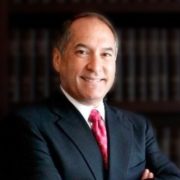ON July 29, 2020, a federal court judge issued a nationwide injunction prohibiting USCIS from enforcing, applying, implementing, or treating as effective, President Trump’s new public charge rules as long as there is a national health emergency caused by the COVID-19 outbreak.
There is also great news, because USCIS announced it will abide by this injunction, and that as long as the court’s decision is in effect, “USCIS will apply the 1999 public charge guidance that was in place before the public charge rule was implemented on February 24, 2020 to the adjudication of any application for adjustment of status on or after July 29, 2020.” They will also apply the old/existing public charge rules in connection with any non-immigrant application for extension or change of status.
As everyone is aware, the new public charge rules were very strict and restrictive, and people could have their adjustment of status denied if they ever received certain public benefits, were too old or sickly, or if an immigration officer believed it was likely that they could, at any time in the future, be dependent on public benefits.
While this injunction is in effect, USCIS will apply the 1999 public charge rules:
• For any petition or application adjudicated (processed) after July 29, 2020, USCIS will not consider any information provided by the applicant or the petitioner relating to the new public charge rule, including information provided on the Form I-944, or any information on the receipt of public benefits.
• For any petition or application postmarked on or after July 29, 2020, applicants should not include the Form I-944 or provide information about the receipt of public benefits on their adjustment of status applications.
• USCIS will not reject any adjustment of status application on the basis of the inclusion or exclusion of form I-944.
While this is great news, I would still advise people to consult with an immigration attorney concerning their eligibility for the immigration benefit they are applying for, and concerning public charge issues. Remember, USCIS states it will abide by the injunction as long as it is in effect. However, the Trump administration could appeal the injunction and have it overturned or lifted, or the COVID-19 emergency ends. That means you should still evaluate your case in reference to eligibility under these new, proposed rules, and be careful about applying for or accepting the types of public benefits included in this new rule, just in case this injunction is lifted.
The rules on eligibility for immigration benefits are changing all the time, and it can be very confusing and complex for people. That’s why I advise that rather than taking chances and handling your case on your own, you should seek the advice and assistance of an attorney.
* * *
Michael J. Gurfinkel has been an attorney for over 35 years and is licensed, and an active member of the State Bars of California and New York. All immigration services are provided by, or under the supervision of, an active member of the State Bar of California. Each case is different and results may depend on the facts of the particular case. The information and opinions contained herein (including testimonials, “Success Stories,” endorsements and re-enactments) are of a general nature, and are not intended to apply to any particular case, and do not constitute a prediction, warranty, guarantee or legal advice regarding the outcome of your legal matter. No attorney-client relationship is, or shall be, established with any reader.
WEBSITE: www.gurfinkel.com
Follow us on Facebook.com/GurfinkelLaw, Twitter @GurfinkelLaw and YouTube: US Immigration TV
Call Toll free to schedule a consultation for anywhere in the US:
1-866-487-3465
(866) – GURFINKEL
Four offices to serve you:
LOS ANGELES ∙ SAN FRANCISCO ∙ NEW YORK ∙ PHILIPPINES







